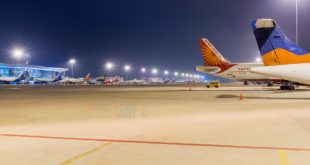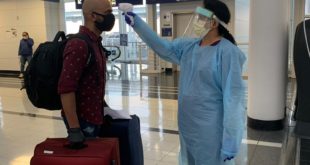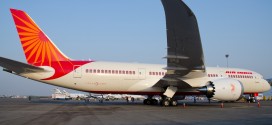The holy month of Ramzan (Ramadan) starts today. This period during which the Muslims of the world fast from dawn to dusk is during peak summer in India, the Middle East, northern Africa. In parts of Europe, North America, and elsewhere in the northern hemisphere, those fasting will have to contend with extremely long daylight hours.
Dr. Issam Badaoui, Medical Director at International SOS, a medical and travel security risk services company, said
“As a medical doctor, my advice to those fasting is to make sure to consume a balanced diet, drink plenty of water, and get sufficient rest.” “it is all the more important that people are careful to avoid any immediate health risks, particularly low blood sugar and dehydration. Fasters should exercise moderation in their eating and drinking habits between Iftar and Imsak, to make it easier for their bodies to adjust to both keeping and breaking the fast every day.”
Seven key tips for a healthy Ramadan:
Eat moderately at Iftar — when breaking the fast, avoid sudden and large intakes of sugary and fatty foods, as these can disturb metabolism and cause dizziness, headaches, fatigue or indigestion. Break the fast with dates, yoghurt and water, and wait ten minutes, before consuming a sensible portion of food, which should be rich in minerals and vitamins.
Make sure to eat Suhour — the sun rises early on the year’s longest days, prompting some people to just have a quick drink of water before the Fajr prayer. International SOS doctors advise getting up and eating before Imsak. For Suhour, choose complex carbohydrates like whole-grain bread, barley and lentils which provide energy through the day.
Get sufficient sleep — routine bedtimes and quality of sleep is affected during the holy month. Aim to get eight hours of sleep in every 24 hour period, even if split into several periods.
Modify your work-out regime — moderate your workouts to allow for the change in eating patterns. Concentrate on lighter exercises, such as brisk walking, instead of intense work-outs. Doctors recommend waiting two to three hours after Iftar before starting any work-outs.
Manage medication and chronic illness — if you suffer chronic health conditions especially diabetics, and yet insist on fasting, consult their doctors immediately and modify your medication regimen to accommodate the fasting. Normally, medication taken at breakfast can be taken at Iftar, and those taken at dinner can be taken at Suhour. Diabetics should consult their doctors on how to modify intake of their insulin and other blood sugar control medications.
Plan workload — In Muslim countries work hours are reduced during the month of Ramadan, yet plan your workload to minimise fatigue. Mental alertness is maximum during the early morning hours and will ebb as the day wears on. Take regular breaks instead of attempting to work in one long work.
Extra caution on the road — low blood sugar due to fasting seriously affects ones concentration and capabilities. The hour before sunset will see heavy traffic in Muslim countries and Muslim dominated neighbourhoods as those fasting return home to break their day long fast and attend prayers. All this contributes to additional accidents and doctors advise avoiding travel if possible during this time. Try to travel with a companion and exercise extreme caution.
Bangalore Aviation wishes all its readers who maintain the fast a healthy and devout month.
 Bangalore Aviation News, Reviews, Analysis and opinions of Indian Aviation
Bangalore Aviation News, Reviews, Analysis and opinions of Indian Aviation
![Azim Azimzade [Public domain], via Wikimedia Commons](https://www.bangaloreaviation.com/wp-content/uploads/2015/06/1024px-Ramazan_with_the_poor-660x330.jpg)


